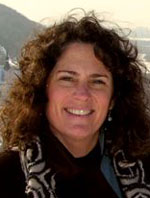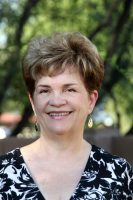A bilingual seminar on the best exponents of this genre during the last two decades, discussed by leading scholars in the field: Isabel Alvarez-Borland (Cuban-American Literature of Exile: From Person to Persona), Andrea O’Reilly Herrera (ReMembering Cuba: Legacy of a Diaspora), and Eliana Rivero (Let’s Hear Their Voices: Cuban American Writers of the Second Generation, co-edited by Iraida López). The panel will be introduced by Cuban poet Iraida Iturralde.
This literary event is part of the CreateNYC Language Access program, and it will be held in English and Spanish, followed by a bilingual Q&A through Zoom, open to the public.
Pictured above (seating, from left to right): Cuban-American writers Vanessa García, Richard Blanco, Gabriela García, Chantel Acevedo, Ana Menéndez and son; (standing in back): literary critics Iraida López and Eliana Rivero.
DUE TO THE COVID-19 PANDEMIC, THIS EVENT WILL NOT BE HELD
BEFORE A LIVE AUDIENCE.
INSTEAD, IT WILL BE STREAMED THROUGH OUR YOUTUBE CHANNEL
AT THE SCHEDULED DATE AND TIME.
PLEASE CLICK ON THE FOLLOWING LINK ON SATURDAY, APRIL 18, AT 4 PM:
https://youtu.be/clAR4B15fYs
BARUCH COLLEGE
25th Street, bet. Lexington and Third Aves., NYC
6th FLOOR: CONFERENCE ROOM 6-210
SPACE IS LIMITED
Free Admission
RSVP at: info@cubanculturalcenter.org
To listen to a one-poem reading by Richard Blanco, one of the poets included in ‘Let’s Hear Their Voices,’ click here:
Isabel Alvarez Borland is Distinguished Professor Emerita of  Arts and Humanities in the Department of Spanish at the College of the Holy Cross, Worcester, MA. Her books include Cuban-American Literature of Exile: From Person to Persona (1999) and Discontinuidad y ruptura en Guillermo Cabrera Infante (1982). She is also co-editor of Negotiating Identities in Cuban American Art and Literature (2009) and Identity, Memory, and Diaspora (2008). She is currently Associate Editor of Hispania and was Co-Director of the 2006 NEH Seminar for College Teachers: Negotiating Identities in Art, Literature and Philosophy: Cuban Americans and American Culture. She has published essays on Cuban and Latin American Literature in scholarly journals such as Hispanic Review, MLN, and Revista Iberoamericana.
Arts and Humanities in the Department of Spanish at the College of the Holy Cross, Worcester, MA. Her books include Cuban-American Literature of Exile: From Person to Persona (1999) and Discontinuidad y ruptura en Guillermo Cabrera Infante (1982). She is also co-editor of Negotiating Identities in Cuban American Art and Literature (2009) and Identity, Memory, and Diaspora (2008). She is currently Associate Editor of Hispania and was Co-Director of the 2006 NEH Seminar for College Teachers: Negotiating Identities in Art, Literature and Philosophy: Cuban Americans and American Culture. She has published essays on Cuban and Latin American Literature in scholarly journals such as Hispanic Review, MLN, and Revista Iberoamericana.
 Andrea O’Reilly Herrera is Professor of Literature and Women’s and Ethnic Studies, and the Associate Vice Chancellor for Equity, Diversity & Inclusion at the University of Colorado at Colorado Springs. Her publications include ReMembering Cuba: Legacy of a Diaspora (University of Texas Press, 2001), a collection of testimonial expressions drawn from diasporic Cubans and their children residing in the US; a novel, The Pearl of the Antilles (Bilingual Review Press, 2001); Cuba: Idea of a Nation Displaced (SUNY Press, 2007), an edited collection of essays; and a monograph titled Cuban Artists Across the Diaspora: Setting the Tent Against the House (University of Texas Press, 2011). O’Reilly Herrera’s current work includes a play, The Presence of Absence, which is a sequel to her novel and will be presented as a staged reading by the Cuban Cultural Center of New York in the spring of 2021.
Andrea O’Reilly Herrera is Professor of Literature and Women’s and Ethnic Studies, and the Associate Vice Chancellor for Equity, Diversity & Inclusion at the University of Colorado at Colorado Springs. Her publications include ReMembering Cuba: Legacy of a Diaspora (University of Texas Press, 2001), a collection of testimonial expressions drawn from diasporic Cubans and their children residing in the US; a novel, The Pearl of the Antilles (Bilingual Review Press, 2001); Cuba: Idea of a Nation Displaced (SUNY Press, 2007), an edited collection of essays; and a monograph titled Cuban Artists Across the Diaspora: Setting the Tent Against the House (University of Texas Press, 2011). O’Reilly Herrera’s current work includes a play, The Presence of Absence, which is a sequel to her novel and will be presented as a staged reading by the Cuban Cultural Center of New York in the spring of 2021.
 Eliana Rivero is Professor Emerita, Spanish and Portuguese Department, The University of Arizona, where she taught Women’s Studies and Latin American Studies until her retirement in 2011. She has done scholarly work on Hispanic, Latin American and US. Latinx literatures for over fifty years. Her most recent books on Cuban-Americans include the anthology Let’s Hear Their Voices: Cuban American Writers of the Second Generation (2019), co-edited with Iraida López, and Discursos desde la diáspora (2005). She has also published numerous essays , among them “La poscubanidad: una historia personal,” in Laura Alonso Gallo and Belén Rodríguez-Mourelo, eds., Identidad y postnacionalismo en la cultura cubana (2019), “Leyendo a Cubamérica: visiones y revisiones,” Reading Cuba: Discurso literario y geografía transcultural, ed. Alberto Sosa Cabanas (2018), et. al.
Eliana Rivero is Professor Emerita, Spanish and Portuguese Department, The University of Arizona, where she taught Women’s Studies and Latin American Studies until her retirement in 2011. She has done scholarly work on Hispanic, Latin American and US. Latinx literatures for over fifty years. Her most recent books on Cuban-Americans include the anthology Let’s Hear Their Voices: Cuban American Writers of the Second Generation (2019), co-edited with Iraida López, and Discursos desde la diáspora (2005). She has also published numerous essays , among them “La poscubanidad: una historia personal,” in Laura Alonso Gallo and Belén Rodríguez-Mourelo, eds., Identidad y postnacionalismo en la cultura cubana (2019), “Leyendo a Cubamérica: visiones y revisiones,” Reading Cuba: Discurso literario y geografía transcultural, ed. Alberto Sosa Cabanas (2018), et. al.
This event is supported, in part, by public funds from the New York City Department of Cultural Affairs
